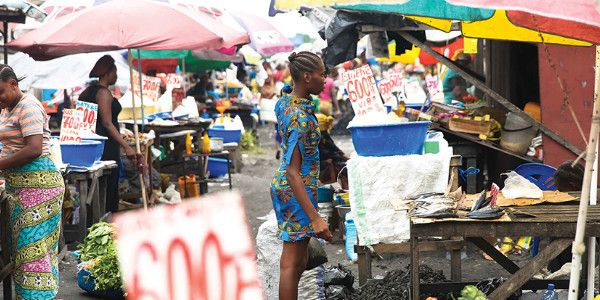An open-air market in Kinshasa, DRC With the right structural and regulatory reforms, many frontier markets in Africa could offer attractive opportunities for investors seeking to capitalise on potential future high growth. A panel discussion at the recent Financial Industry Summit, hosted by the Africa CEO Forum and held over two days in March, placed three markets in the spotlight: Ethiopia, the Democratic Republic of Congo (DRC) and Angola .
One of the panellists, David Cowan, chief economist for Africa at Citibank, also added South Sudan , The Gambia , Zimbabwe , Seychelles and Algeria for consideration as they met his first two criteria investors look for when contemplating growth potential: political change and the prospect of economic and structural reform. The third is income levels.
With regard to structural change, Ethiopia, the DRC and Angola all recently signed IMF programmes, said Cowan, which put foreign exchange policy as a central focus. Being able to take the return on their investments out of any country, is often a major concern for investors. “Currency inconvertibility is one of the biggest disincentives,” explained Cowan.
According to him, there is a wide range of macroeconomic factors that can help identify an African frontier market, but the potential growth and reform trajectory are probably the most important.
He cautioned investors that frontier market growth is often not a straight line. “Remember that frontier markets can emerge, they can submerge and then they can re-emerge. When you invest in these countries, you must have your time horizon right,” adding that investors should take a long-term outlook of 10 to 15 years.
While income and population levels matter, Cowan argued it is the combination of the two that is more important for any investor, depending on their target market. For example, for one investor, the large population of Ethiopia could predict better results, even though their income levels are quite low, as opposed to the more affluent and smaller population of Seychelles.
All the panellists believe investors should be looking towards Africa now and see the rewards behind the risk.
Mustafa Rawji, the managing director of indigenous DRC bank Rawbank, said the country will remain attractive to investors as long as some critical structural reforms are enacted by the government. “I am a firm believer in private sector-led development,” Rawji noted, motivating for the right legal framework and fiscal reforms from the government to help achieve this. He added that serious […]
